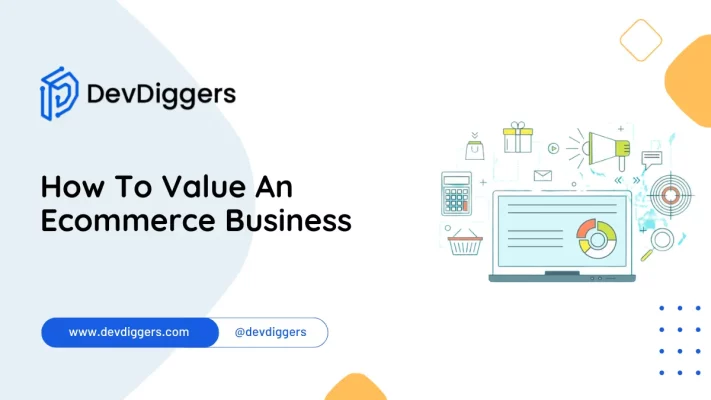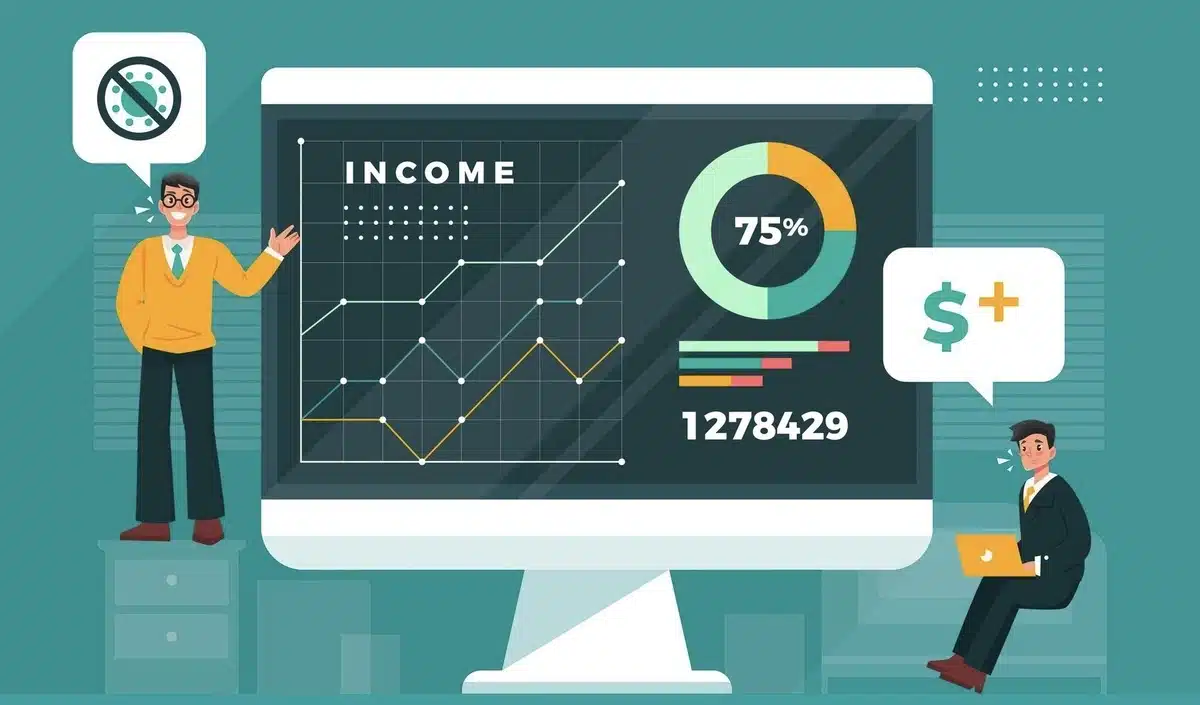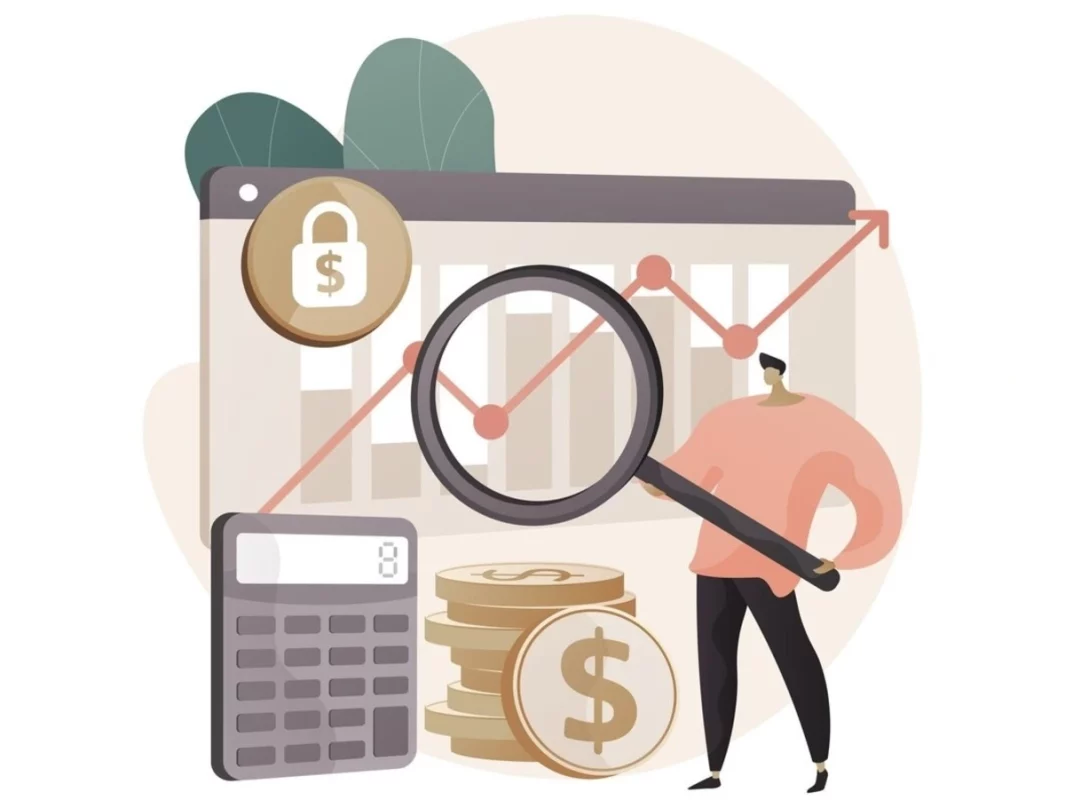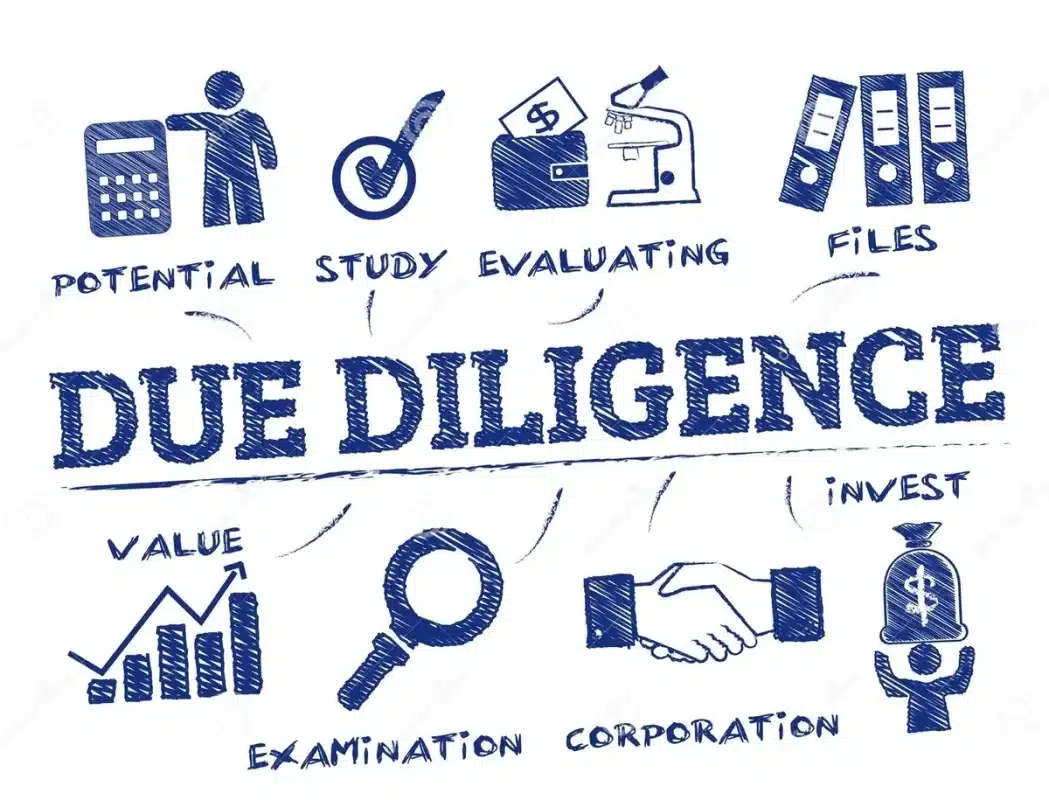- What Is Ecommerce Business Valuation?
- Why To Value An Ecommerce Business?
- How To Value An Ecommerce Business
- Conclusion
- FAQs
- How is revenue typically evaluated in eCommerce business valuation?
- What should eCommerce business owners do to increase their company's valuation?
- When is the right time to conduct a valuation of an eCommerce business?
- How do industry trends affect the valuation of an eCommerce business?
- How important are brand and intellectual property in eCommerce business valuation?
How To Value An Ecommerce Business

- What Is Ecommerce Business Valuation?
- Why To Value An Ecommerce Business?
- How To Value An Ecommerce Business
- Conclusion
- FAQs
- How is revenue typically evaluated in eCommerce business valuation?
- What should eCommerce business owners do to increase their company's valuation?
- When is the right time to conduct a valuation of an eCommerce business?
- How do industry trends affect the valuation of an eCommerce business?
- How important are brand and intellectual property in eCommerce business valuation?
No matter if you’re buying, selling, or investing in a business, having the know-how to value an eCommerce business is key. The same applies for every active Internet business. With the growth of Internet commerce, knowing how the fair market value measures and processes are calculated is important.
For valuation, all revenue streams and prospects, customer base, brand image, and market growth are of extreme importance.
In this guide, we will go over how to value an eCommerce business, covering various methodologies and essential elements to help you resolve this complex but beneficial endeavor.
An entrepreneur aiming to sell his online store and an investor searching for prospects in the cyber market, knowing how to value an eCommerce business can help make successful deals, instead of losing great opportunities.
What Is Ecommerce Business Valuation?
Determining an eCommerce business’s value is essentially estimating the worth of an online business or its impact in the digital ecommerce space.
Whether it is for selling the business, consolidating, obtaining financing or simply measuring the estimate of the company’s value, eCommerce business valuation needs to be performed meticulously.
While doing this kind of process, a variety of measures and criteria are set into place.
Here are some relevant methods and components of eCommerce business valuation that will surely help you out.
Why To Value An Ecommerce Business?
Learning how to place a value on an eCommerce business is instrumental for stakeholders, investors, and owners for multiple reasons:
- Making Important Decisions: With a valuation, you are given an overview of the eCommerce business’s financial performance and its operational value. This information is invaluable when making strategic choices in regards to business growth, investment, partnerships, and sales prospects.
- Obtaining Investment: An eCommerce business in need of funding should seek investors or lenders who are willing to commit capital. A written valuation allows the business to gain capital for other operating expenses or expansion by estimating the risk and potential ROI.
- Buying or Selling Purposes: The valuation of an online company is essential during the purchase and sale of a business. Requirements for prospective sellers is to sell at profit margins while the buyers look for the best offer with the most reasonable worth.
- Track Results: An organization can perceive its level of success or growth by selected moments of time and their comparison alongside other competitors of the company.
- Agreement Between Shareholders: Valuing the amount of stake ownership ensures fair treatment of partners and shareholders. It also guarantees equity when decisions need to be made regarding stock sale, buyout, or merger.
- Legal and tax compliance: A business valuator may be required to assist from either a tax reporting standpoint such as estimating capital gain taxes or evaluating intangible assets for possible tax write off opportunities. It helps in complying with the accounting standards and law.
- Risk Management: For eCommerce businesses, having a clear understanding of the value of the business greatly enhances the ability to assess and manage risks. It shows where the weaknesses are and how they could possibly be addressed.
- Employee Incentives: Valuation assists in appreciating the level of equity compensation the employee is entitled to, thereby motivating them to work harder towards the success of the firm.
- Strategic Partnerships and Alliances: Valuation estimates are needed in the procedures involving strategic alliances, joint ventures, partnerships, and other agreements for they show the perceived value of the eCommerce business and the anticipated benefits.
- Exit Planning: The value of a business is important for its owners who want to walk away from wanting to sell it, leave it to someone, or retire by gauging how much income they expect to receive as their pension benefits versus what they may need to pay for the business to pass onto their heirs.
In summary, understanding the value of an eCommerce business is incredibly important for making sound decisions, raising funds, meeting legal requirements and regulations, overseeing risk, and thinking about growing or exiting the business.
This assures stakeholders and enhances confidence, while reflecting business maximum value with minimal effort.
How To Value An Ecommerce Business
Understanding how to value an eCommerce business involves a comprehensive assessment of several key factors to determine its worth. Below are essential steps and considerations to guide this process:
1. Revenue and Profit Analysis

The first thing you should do to determine how to place a value on an eCommerce business is to analyze its income and profitability deeply.
Identify the core eCommerce revenue streams, which could include product sales, subscriptions, etc.
Examine profit margins along with operational efficiency to assess financial health and growth potential.
Always look for steady revenue growth and check if the business model is scalable. Also remember to consider any exceptional items that impact profits.
This depth of information will allow you to properly value the online business.
2. Customer Base and Market Position

To determine the worth of an eCommerce business, it proves essential to explore its souse market target and how the business has situated itself with the competition.
When analyzing customer structure, purchasing habits, and overall value, it becomes a lot easier to comprehend the costs of acquisition, retention rates, and the overall appeal of the market.
gThis part of the competition offers some guidance as to what chances exists in the market based on the firm’s competitive edge, selling points and entry barriers.
Online businesses with strong establishments have raised perception value of having or improving on an existing market position. This enhances in very strong online businesses making its assessment parts like growth potential and having a solid market presence important in evaluating an online business.
This portion of the eCommerce business appraisal illustrates the importance of evaluating the customer base alongside the market and competition.
3. Assets and Inventory

Looking at a company’s eCommerce valuation, start with an audit of the assets. Starting with the tangible assets like physical inventory, equipment, and the actual facilities where you store the products.
Inventory control is essential in eCommerce since it affects efficiency as well as financial performance.
Take into account the current value of stocks considering the rate of turnover, stock that is deemed obsolete, and anticipated write-downs.
Consider the intellectual property associated with a product or the brand trademarks like copyright and patent names.
They’re the most invisible assets but from a branding and positioning standpoint, they add great value.
Review additional assets such as the eCommerce website, a domain name, and a customer file for the company’s directory.
As much as these assets are helpful to the organization, they also increase the company’s public image and customer engagement, contributing to the company’s estimation value.
4. Ecommerce Platform and Technology

Evaluating the eCommerce platform and technologies is necessary when determining how to value an eCommerce business.
This includes assessing the platform’s scalability, functionality, and ability to estimate future growth.
Assessing the user experience (UX) and interface design is critical since they directly impact consumer engagement and conversion rates.
In addition, investigate the backend infrastructure, which includes hosting arrangements, security measures, and data management systems.
Understanding these technical factors improves operating efficiency and highlights potential hazards such as technology outdates or vulnerabilities.
Evaluating ongoing technological investments in platform maintenance or upgrades is also critical, as these investments affect future operational costs and capabilities.
A strong eCommerce platform that supports growth and improves consumer experience can greatly contribute to the business
5. Market Conditions and Industry Trends

When understanding how to value an eCommerce business, it is necessary to consider market conditions and industry trends.
This involves tracking economic variables like GDP growth, consumer spending habits, and interest rates, all impacting online purchase behavior.
Understanding eCommerce growth estimates, mobile commerce trends, and technical breakthroughs like AI and blockchain is also critical.
Changes in the regulatory environment, competitive landscape, and developing market prospects all impact firm valuation.
By assessing these criteria, stakeholders can make more informed decisions about an eCommerce business’s value and growth potential.
6. Financial Metrics

Valuing an eCommerce business involves analyzing key financial factors important to its performance and growth. Gross Merchandise Value (GMV) evaluates overall sales volume and focuses on transaction scale.
Customer Lifetime Value (CLV) predicts total revenue from each client, reflecting loyalty and retention performance.
Average Order Value (AOV) represents the average amount spent on each transaction, directly impacting income through pricing and marketing methods.
Conversion rate is the success of converting visitors into consumers. Profitability measures, such as gross and net profit margins, evaluate financial health and efficiency.
Marketing efficiency is evaluated using the Cost of Customer Acquisition (CAC) versus CLV metric.
Return on Investment (ROI) analyzes the profitability of investments and guides strategic decisions.
These metrics provide a comprehensive financial performance perspective and help eCommerce businesses with accurate evaluation and strategic planning.
7. Valuation Methods

The next step in how to value an eCommerce business is to use a variety of approaches to evaluate its worth. There are several valuation methods that you can go with to help value your eCommerce business.
- Discounted Cash Flow (DCF): The Discounted Cash Flow (DCF) method anticipates future cash flows and discounts them to present value, which is appropriate for organizations with predictable revenue streams.
- Market Comparables: This method compares the business to similar ones based on revenue multiples and customer data.
- Asset-Based Approach: The Asset-Based Approach evaluates website value.
- Income Approach: The Income Approach evaluates income possibilities using indicators such as gross merchandise value (GMV) and profit margins.
- Risk Assessment Adjustments: This method considers industry-specific hazards.
- Hybrid Approaches: Hybrid Approaches combine methodologies to provide an integrated evaluation.
Choosing the suitable method is determined by the stage of the business and market dynamics, resulting in a complete assessment guided by experienced professionals.
8. Due Diligence

Conducting thorough due diligence is an essential step in how to value an eCommerce business.
This essential phase thoroughly examines numerous variables to acquire explicit knowledge before calculating the market value.
Financial due diligence includes reviewing financial accounts for correctness, assessing income sources and expenses, and detecting any liabilities or abnormalities affecting valuation.
Operational due diligence evaluates the efficiency of operational procedures, including order fulfillment and customer service.
Legal and compliance due diligence guarantees regulatory compliance while also reviewing contractual commitments.
Customer and market due diligence examines customer demographics, market positioning, and competitor analysis.
Technological due diligence assesses the eCommerce platform’s scalability and stability.
Strategic due diligence examines current actions and their strategic alignment with market opportunities.
By meticulously examining these areas, stakeholders can uncover critical insights contributing to a well-founded eCommerce business valuation.
Conclusion
In conclusion, understanding how to value an eCommerce business requires a thorough assessment of financial performance, operational efficiency, market dynamics, and development potential.
Stakeholders can obtain a thorough valuation by combining quantitative factors like revenue streams and profitability with qualitative elements like brand equity, consumer involvement, and industry trends.
Furthermore, accurate due diligence in the legal, technological, and strategic dimensions ensures a precise evaluation of the business’s value.
This method helps businesses make educated decisions and places them strategically in the competitive eCommerce landscape.
Finally, by taking a practical and systematic approach customized to the complexities of eCommerce, stakeholders may accurately assess the business’s underlying value in today’s changing industry.
FAQs
How is revenue typically evaluated in eCommerce business valuation?
Revenue evaluation in eCommerce businesses often involves analyzing revenue streams’ consistency, growth rate, and quality. Factors such as recurring revenue, customer acquisition cost (CAC) to lifetime value (LTV) ratio and revenue diversification are crucial in determining the valuation.
What should eCommerce business owners do to increase their company’s valuation?
To enhance valuation, eCommerce business owners should focus on improving profitability, expanding customer acquisition channels, optimizing operational efficiency, nurturing customer relationships, investing in scalable technology, and staying abreast of industry developments.
When is the right time to conduct a valuation of an eCommerce business?
Valuation should be conducted regularly before significant business events such as fundraising, mergers, acquisitions, or exit strategies. It helps stakeholders understand the business’s current worth, identify growth opportunities, and make informed strategic decisions.
How do industry trends affect the valuation of an eCommerce business?
Current and projected industry trends, including market growth rates, technological advancements, regulatory changes, and consumer behavior shifts, play a pivotal role in eCommerce business valuation. Businesses aligned with favorable trends often command higher valuations due to perceived future growth opportunities.
How important are brand and intellectual property in eCommerce business valuation?
The brand’s strength, reputation, trademarks, patents, and other intellectual property rights significantly influence an eCommerce business’s value. A strong brand presence enhances customer trust, competitive advantage, and market positioning, thereby increasing overall valuation.

Kartika Musle
A Tech enthusiast and skilled wordsmith. Explore the digital world with insightful content and unlock the latest in tech through my vision.

Leave a Reply